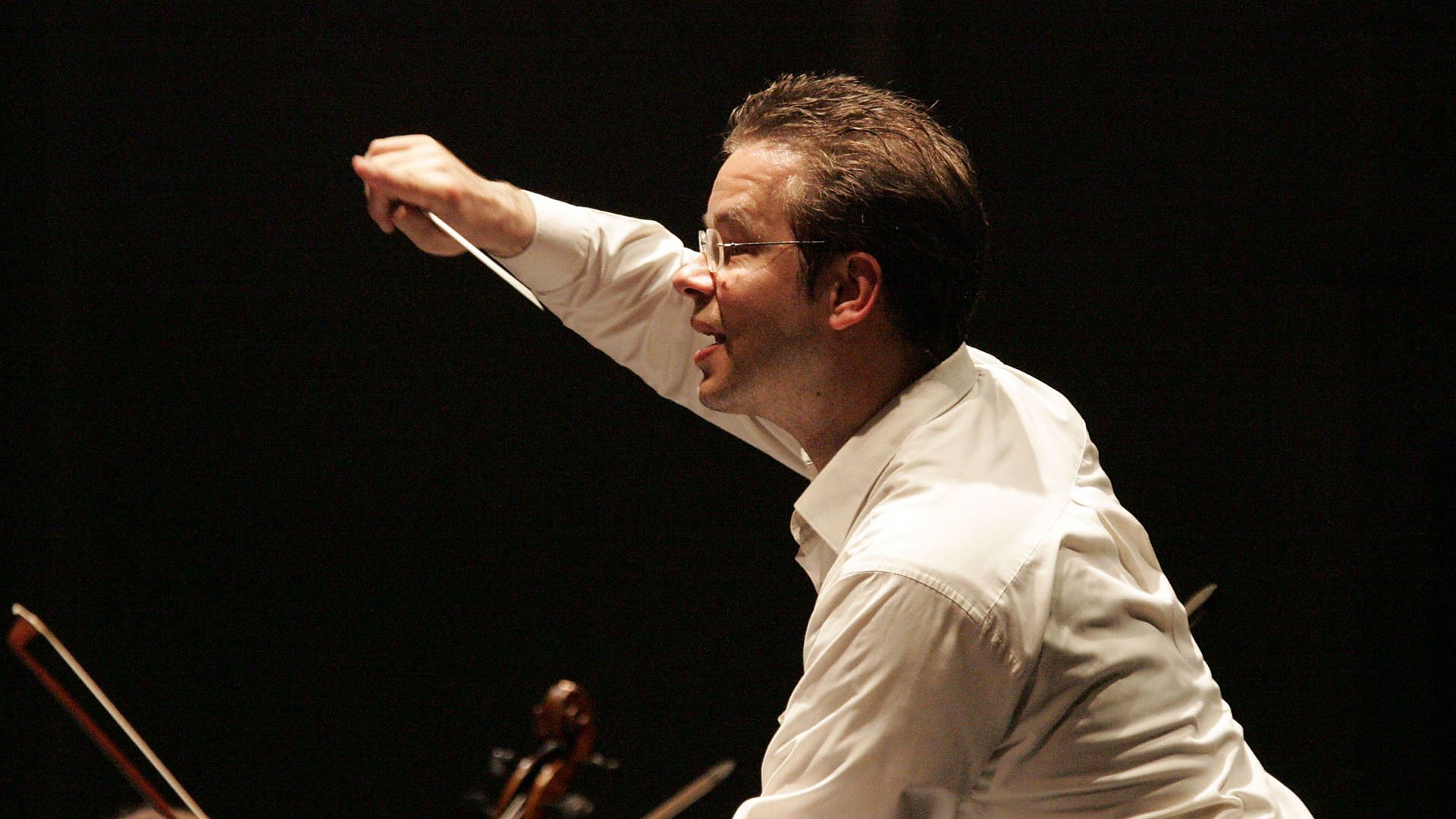In this concert, the BBC Scottish Symphony Orchestra plays three pieces, all with a perspective on power. They provide, some might say, an interesting commentary on our current election campaign. First, we have Haydn’s classically elegant Symphony No 22 in E flat, nicknamed ‘The Philosopher’. It is known for its measured conversation between two cor anglais and horn. Here, for all the musical skill of the BBC SSO, it is somewhat overshadowed by the theatrical fireworks that follow.
That is particularly true of coloratura soprano Sara Hershkowitz’s brilliant performance of Ligeti’s Mysteries of the Macabre, a three-part aria from Ligeti’s opera Le Grande Macabre. Here Hershkowitz sings the role of the Chief of the Secret Police Force, come to warn her dictator boss of a fearsome threat to his power. In a ‘crazy jumble of cliches’ reminiscent of today’s tabloid headlines – ‘O! Co-coding Zero: highest security grade! Birds on the wing! Double you see! Snakes in the grass! Rabble, rabble, rabble! Riot, Riot! Unlawful assemblies! Communal insurrection! Mutinous masses! Turbulence! Panic! Panic! Pa-aaaaapa-apa-papa-panic!’ And much more, all expressed in magnificent coloratura, accompanied by much rustling of foil, brandishing of plastic bottles, tearing of hair and flirtatious swishing of a very attractive dress. Make no mistake, this is satire. The delightful Ms Hershkowitz performed the same aria, unrecognisable in fat suit, orange make-up and straw hair, with the North Netherlands Orchestra in 2018! Tonight’s much more sophisticated – and pleasing – performance nonetheless left no doubt of its political message.
Both Haydn’s rationalism and Ligeti’s satire provide valuable seasoning to the rich musical feast which follows the interval. Wagner’s Ring cycle is a deep favourite of political thinkers and politicians of many different persuasions. Maybe this is because of its portrayal of the intimate relationship between love and power. George Bernard Shaw, Thomas Mann and others saw it a critique of capitalism. Mann denounced those whose spirit of piety or brutal regression would claim it for their own. He alluded here in part to Wagner’s appeal to German nationalism, including its most brutal and amoral exponents who formed the Third Reich. Nowadays, enthusiastic Wagnerians include political thinkers on both right and left, stirred by the emotional and psychological power of his musical dramas.
Maarten Brandt in the programme notes to tonight’s symphony compares de Vlieger’s 1991 arrangement of Wagner’s Ring (The Ring: an orchestral adventure) with the abridging of a text which if carried out conscientiously will do no violence to the author’s original style. Here, de Vlieger abridges a 14 hour operatic cycle to a 68 minute symphony, no words but with all Wagner’s musical ‘leitmotifs’ intact, but naturally without much of Wagner’s orchestral development. We are offered a fourteen course tasting menu of immense richness, very enjoyable, beautifully played by the BBC SSO, but a touch indigestible. A situation much alleviated by the seasoning of what went before the interval.
